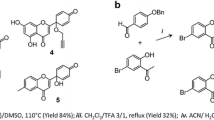Abstract
Background : Determinants of cellular sensitivity to anticancer drugs include enzymes that catalyze their biotransformation. Coordinated induction of some of these enzymes is known to be caused by a number of dietary constituents, environmental contaminants, phar‐macological agents and other xenobiotics, e.g. 3-methylcholanthrene and catechol. Despite the potential for inducing simultaneous changes in tumor cell sensitivity to a wide range of drugs, scant attention has been paid to the impact that dietary constituents and other xenobiotics might have on the therapeutic outcome of cancer chemotherapy. Purpose: The aim of this investigation was to demonstrate the potential of xenobiotic-induced multienzyme-mediated stable and transient multidrug resistance/collateral sensitivity in a model system. Methods: Human breast adenocarcinoma MCF-7/0 cells and a stably oxazaphosphorine-resistant subline thereof, MCF-7/OAP, were grown in the presence of 3-methylcholanthrene (3 μM ), catechol (30 μM ), or vehicle for 5 days. Spectrophotometric and spectrofluorometric assays were used to quantify catalytic activities and thus cellular levels of cytosolic class 3 aldehyde dehydrogenase, glutathione S-transferase, DT-diaphorase, UDP-glucuronosyl transferase and cytochrome P450 1A1. A colony-forming assay was used to quantify cellular sensitivities to several anticancer drugs. Results: Relative to their untreated counterparts, MCF-7/0 and MCF-7/OAP cells treated with 3-methylcholanthrene or catechol transiently expressed elevated levels of cytosolic class 3 aldehyde dehydrogenase, glutathione S-transferase, DT-diaphorase and UDP-glucuronosyl transferase, and were transiently, more resistant to mafosfamide, melphalan, and mitoxantrone, and more sensitive to EO9. Further, MCF-7/0 and MCF-7/OAP cells treated with 3-methylcholanthrene, but not those treated with catechol, transiently expressed elevated levels of cytochrome P450 1A1 and were transiently more sensitive to ellipticine. Relative to MCF-7/0 cells, MCF-7/OAP cells stably overexpressed all but cytochrome P450 1A1 and were stably, more resistant to mafosfamide, melphalan and mitoxantrone, and more sensitive to EO9. Inclusion of relatively specific inhibitors of, or alternative substrates for, the enzymes of interest during drug exposure negated the influence of enzyme overexpression on cellular sensitivities to these agents. Untreated, and 3-methylcholanthrene- or catechol-treated, MCF-7/0 and MCF-7/OAP cells were equisensitive to vincristine and nearly so to doxorubicin. Conclusions: Collectively, these experiments illustrate the potential for both stable and transient xenobiotic-induced multienzyme-mediated multidrug resistance/collateral sensitivity that, although also the result of a single event, is mechanistically different from, and pertains to a largely different group of anticancer agents than does, the multidrug resistance caused by cell surface multidrug transporters.
Similar content being viewed by others
Author information
Authors and Affiliations
Additional information
Received: 30 August 1996 / Accepted: 16 November 1996
Rights and permissions
About this article
Cite this article
Rekha, G., Sladek, N. Multienzyme-mediated stable and transient multidrug resistance and collateral sensitivity induced by xenobiotics. Cancer Chemother Pharmacol 40, 215–224 (1997). https://doi.org/10.1007/s002800050649
Issue Date:
DOI: https://doi.org/10.1007/s002800050649
- Key words Aldehyde dehydrogenase
- DT-diaphorase
- Glutathione S-transferase
- UDP-glucuronosyl transferase
- Cytochrome P450 1A1
- Mafosfamide
- Cyclophosphamide
- Ifosfamide
- Oxazaphosphorines
- EO9
- Melphalan
- Mitoxantrone
- Ellipticine
- Doxorubicin
- Vincristine
- Multidrug resistance
- Multidrug collateral sensitivity
- Breast cancer
- Monofunctional inducers
- Bifunctional inducers
- Phase 1 drug-metabolizing enzymes
- Phase 2 drug-metabolizing enzymes




